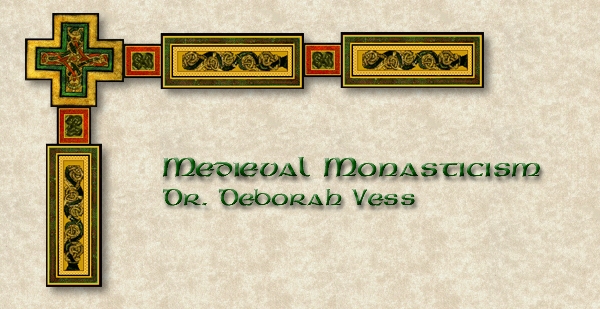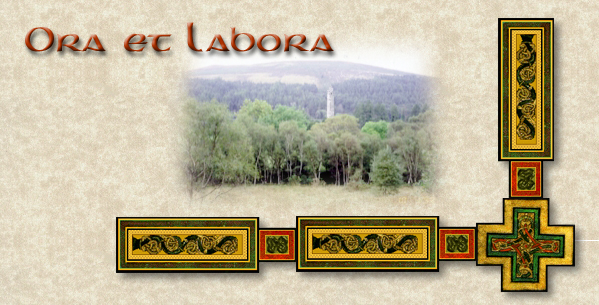
Medieval Monasticism is a survey of the forms of religious life in the medieval west, and the major contributions of medieval monasticism to medieval and to modern culture. In this course we will study the major texts which governed medieval monastic life, expressed its fundamental values, and which inform us about patronage and the relationship of the monasteries to the secular world.Through this web site, originally developed for a course taught at Georgia College & State University, we will take a journey together into the desert, and through the lives and sayings of the desert hermits explore the origins of monasticism; from there, we shall travel together through the cenobitic tradition, and explore the legacy of Benedictine, Cluniac, and Cistercian monasticism, as well as the new orders of the Central Middle Ages.
We shall see how European culture was formed and developed out of the peregrinations of such monastics as St. Boniface, St. Columba, and St. Columbanus. The great medievalist Jean Leclerq once described monastic culture "as the love of learning and the desire for God," and we shall explore the legacy of learning which grew out of the monasteries, as well as the impact of the Benedictine motto "Ora et Labora" on the economic, social, and political life of Europe.
Finally, we shall trace the continuity of these medieval traditions through to our own times, and explore some of the great modern houses and their lived experience of the monastic tradition. It is my hope that through the major Rules and texts that we will study, students will embark with the great monastics of past and present on a journey of self-discovery. It will be my great pleasure to take this journey with you; together we shall come to a greater understanding of these sources in a way which I fervently hope will enrich not only your historical understanding of the medieval period, but also your life in general.
| copyright © Dr. Deborah Vess 1999. All
rights reserved.
For further information regarding these materials, contact the author via e-mail:
or by snail mail at: Dr.
Deborah Vess The author regrets that she cannot respond to all questions or e-mail generated by this site.
Last updated October 20, 2015.
Below: The bell tower at Glendalough, Ireland.
|

